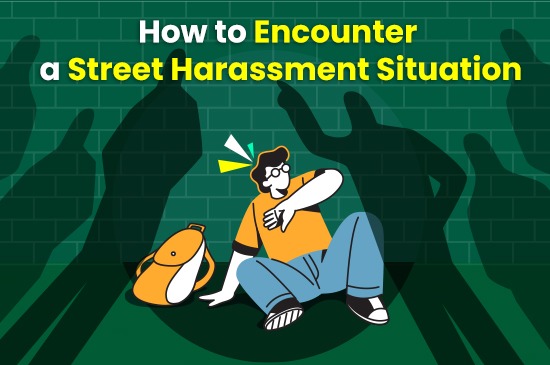Personal safety and self-defense should always be a priority, but it becomes even more critical when you or your child transitions to college or hostel life for the first time. The experience can be intimidating, but it doesn’t mean you can’t take measures to stay safe. Whether you’re male or female, a girl or a boy, young or old, knowing how to protect yourself is vital. For young college women aged 13 and above, Personal safety has become a paramount concern in today’s fast-paced world. Especially for students navigating through school, college, or hostel life. While educational institutions strive to create safe environments, students must also take proactive steps to protect themselves. Learning self-defense not only equips students with vital skills but also fosters confidence and a sense of empowerment.
Being aware of your surroundings remains the most effective and proactive method of defense. By staying vigilant and mindful, students can often avoid potentially dangerous situations before they escalate.
This blog explores essential self-defense tips and techniques tailored for students, ensuring they feel prepared to handle unforeseen situations with courage and clarity.
Key Self-Defense Tips for Students

- Stay Alert: Avoid distractions like phones or headphones, especially in crowded or unfamiliar areas. Trust your instincts—if something feels off, leave the situation.
- Learn Basic Moves: Master simple techniques like escaping wrist grabs, striking sensitive areas (nose, eyes, neck, groin), or creating distractions. Practice regularly.
- Use Everyday Items: Keys, pens, pepper spray, a water bottle, or On the other hand, you may use heavy objects right away to ensure your personal safety. It can be used as makeshift weapons. A key between your fingers can act as a defensive tool.
- Defend Against Attacks: For wrist grabs, rotate towards the thumb to break free. For chokeholds, lower your chin, twist sideways, and strike with elbows. Use surprise to your advantage, like a loud scream.
- Know Your Surroundings: Familiarize yourself with your campus and emergency exits. Keep a flashlight and panic phone numbers handy.
7 Hostel Safety Tips for Students

Navigating hostel campuses safely requires awareness and smart decision-making. Here are some essential tips to ensure your well-being while embracing campus life:
- Lock Doors and Windows: Ensure your room is locked when you’re inside or away. A secure environment reduces the risk of theft or intrusion.
- Leverage Campus Security: Know what campus security services are available, such as companion services for night walks or emergency numbers. Save these contacts for easy access.
- Build a Trust Network: Develop friendships with hostelmates and foster a culture of looking out for one another.
- Avoid Risky Areas After Dark: Stick to well-lit paths and avoid isolated shortcuts. If traveling late, inform someone about your route and arrival time.
- Safety Apps for Protection: Download apps designed for personal safety, such as those ( like ‘112 India’, and ‘Mysafetypins’) that share your real-time location with trusted contacts or send SOS alerts to authorities for emergencies.
- Walk-in Groups: Whenever possible, Stick with friends or classmates when moving around campus. Groups are less likely to be targeted, ensuring added safety
- Use Designated Study Zones: Study in monitored libraries or secure areas, especially if it’s late. Avoid isolated spaces like empty classrooms.
Importance of Self-Defense Training for All Students

Self-defense is crucial for students as it provides practical skills to protect themselves from harm and fosters personal security. Also, it empowers you for real-life situations while boosting fitness and self-esteem, especially during formative years when students build independence and self-identity. Self-defense promotes mental resilience and situational awareness, enabling students to make informed decisions in everyday life. This confidence helps students face situations like walking alone on campus or returning from late-night classes. This education equips individuals with the confidence to face situations head-on, make safer choices, and acts as a deterrent to potential assailants, thereby contributing to campus safety. Ultimately, Self-defense equips students with essential life skills that extend beyond school and college, fostering independence, self-reliance, and personal growth, empowering them to focus on their education and future with a sense of empowerment and well-being.
The INVESTEEN Self-Defense Program offers essential training in defensive techniques, combining physical and mental strength to help students navigate life confidently. With affordable online classes, it’s easy to get started on this crucial life skill.
Mental and Emotional Preparedness
Your mindset plays a pivotal role in your ability to stay safe and handle challenging situations. Panic can cloud judgment, Stay calm under pressure by practicing deep breathing, and build mental resilience by visualizing potential threats and planning your response. Confidence and assertiveness can be powerful deterrents—speak firmly and maintain eye contact when addressing someone who makes you uncomfortable. Trust in your ability to stay composed and take control when needed.
Conclusion
Personal safety is a responsibility every student should embrace. By learning self-defense techniques, staying alert, and being prepared, you can navigate school, college, and hostel life with confidence. Beyond just physical safety, self-defense fosters empowerment and resilience, helping students thrive in any environment.
Take the first step today—practice self-defense moves, join a training program, and share these tips with your peers. Together, we can create a safer and more secure environment for everyone.
Stay safe, stay smart!
FAQs (Frequently Asked Questions)
Why should students learn self-defense?
Self-defense is a powerful tool that not only helps protect you physically but also boosts your confidence and sense of independence. It prepares you to handle unexpected situations with clarity and control.
What are some simple self-defense moves I can learn?
Learn basic techniques like how to break free from a wrist grab, strike vulnerable areas (eyes, nose, groin), and create distractions. These moves are simple, effective, and can be life-saving in a moment of need.
How can I stay alert on campus?
Avoid distractions like phones or headphones when walking around campus. Trust your instincts—if something feels wrong, don’t ignore it. Always stay aware of your surroundings, especially in unfamiliar or crowded spaces.
How can understanding attackers?
By understanding the mindset of an attacker, you can anticipate their behavior and avoid becoming their target. Knowing how predators think gives you the tools to stay alert and make better decisions in risky situations.
What are the two types of violence I should know about?
The two types of violence are:
Predatory Violence: Planned and motivated by a desire for gain (money, control, etc.). Predators often target the vulnerable.
Emotional Violence: Reacts to heightened emotions like anger. It can often be de-escalated with the right approach and calm communication.
What should I do in a dangerous situation?
Trust your instincts. If possible, de-escalate. If not, use self-defense techniques to break free or escape.









